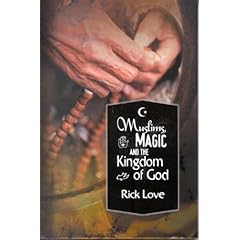 To begin with, I am back from conquering the Sawtooth Wilderness (at least the East to West approach) – it was a great trip full of adventures and beautiful scenery. Lord willing I will try to upload some pictures tonight or Saturday at the latest.
To begin with, I am back from conquering the Sawtooth Wilderness (at least the East to West approach) – it was a great trip full of adventures and beautiful scenery. Lord willing I will try to upload some pictures tonight or Saturday at the latest.
Adrio König was, until his retirement a few years ago, the professor of Systematic Theology at the University of South Africa. He is a member of the Dutch Reformed Church – which made is book The Eclipse of Christ in Eschatology: Toward a Christ-Centred Approach all the more interesting as it looked at the kingdom of God through a different angle or window then American Evangelicalism.
One side note before jumping into the book – I just recently realized the difference between a biblical theologian (like George Ladd) and a systematic theologian (Adrio König). A biblical theologian focuses on the details of biblical exegesis or specific books. A systematic theologian takes a step back from the details and looks at the vast landscape of the Bible and Christian doctrine.
Knowing this, I realized that I tend to lean towards being a systematic theologian vs a biblical theologian (i.e. big picture vs details). This is interesting as I did not enjoy the systematic theology class of VLI nor the systematic theology book we had to read…. Oh well.
Anyway, back to König book The Eclipse of Christ in Eschatology.[@more@]
I wish I could quote some of his words from this book – but I loaned it out already, so I will have to rely on my memory to write this review. Overall, I thoroughly enjoyed the book. It was a bit tough at times to wad through – but not that tough, especially after reading Ladd and other such items.
The main theme or focus on this book was the understanding that Jesus Christ is THE end. In the study of eschatology (literally the “study of the end”) people tend to focus on the second coming of Jesus. What König does is bring eschatology back to the Biblical idea that Jesus is the eschon (Greek for “the end”) – He is the end and the beginning, the first and the last. Therefore a study of end (end of the word, end of this age, etc) is a study of Jesus Christ – His birth, life, ministry, death, resurrection, ascension and Pentecost (when His Spirit was given to the church).
Why some of this focus on Jesus may come from König Reform background, I believe most of it comes from a strong Biblical foundation. I mean; does not the Torah and prophets all point towards the person of Jesus Christ? Was not the incarnation or God-in-flesh nature of Jesus an end event?
The Bible says that Jesus came to destroy the works of the evil one, to conqueror death, hell, sin, and to redeem all of creation for the glory of God. Each and ever item listed was prophesied by the prophets of old to happen when the Day of Lord came. If Jesus really was God, then the ‘end’ has already come – yet it is also coming still.
Adrio König describes this tension in three ways: for us, in us and with us.
- Jesus has destroyed sin and the evil one (“for us”)
- Through Jesus, we can become the people of God (“in us”)
- In following Jesus, we can, through His Spirit, join with God in doing His works on this earth at this time (“with us”)
As you can see, König covered a lot of territory in his book The Eclipse of Christ in Eschatology – territory well worth traveling.
It is actually kind of funny that I just so happen to read this book at this time seeing how our church has started studying Revelation. It was not a planned event as I had bought the book about a year ago – but had loaned it out almost immediately to a fellow journeyer. He returned the book just recently and I started reading – all in God’s timing. 





 Everything Must Change: Jesus, Global Crises, and a Revolution of Hope
Everything Must Change: Jesus, Global Crises, and a Revolution of Hope I know I wrote a reivew of this book
I know I wrote a reivew of this book 
